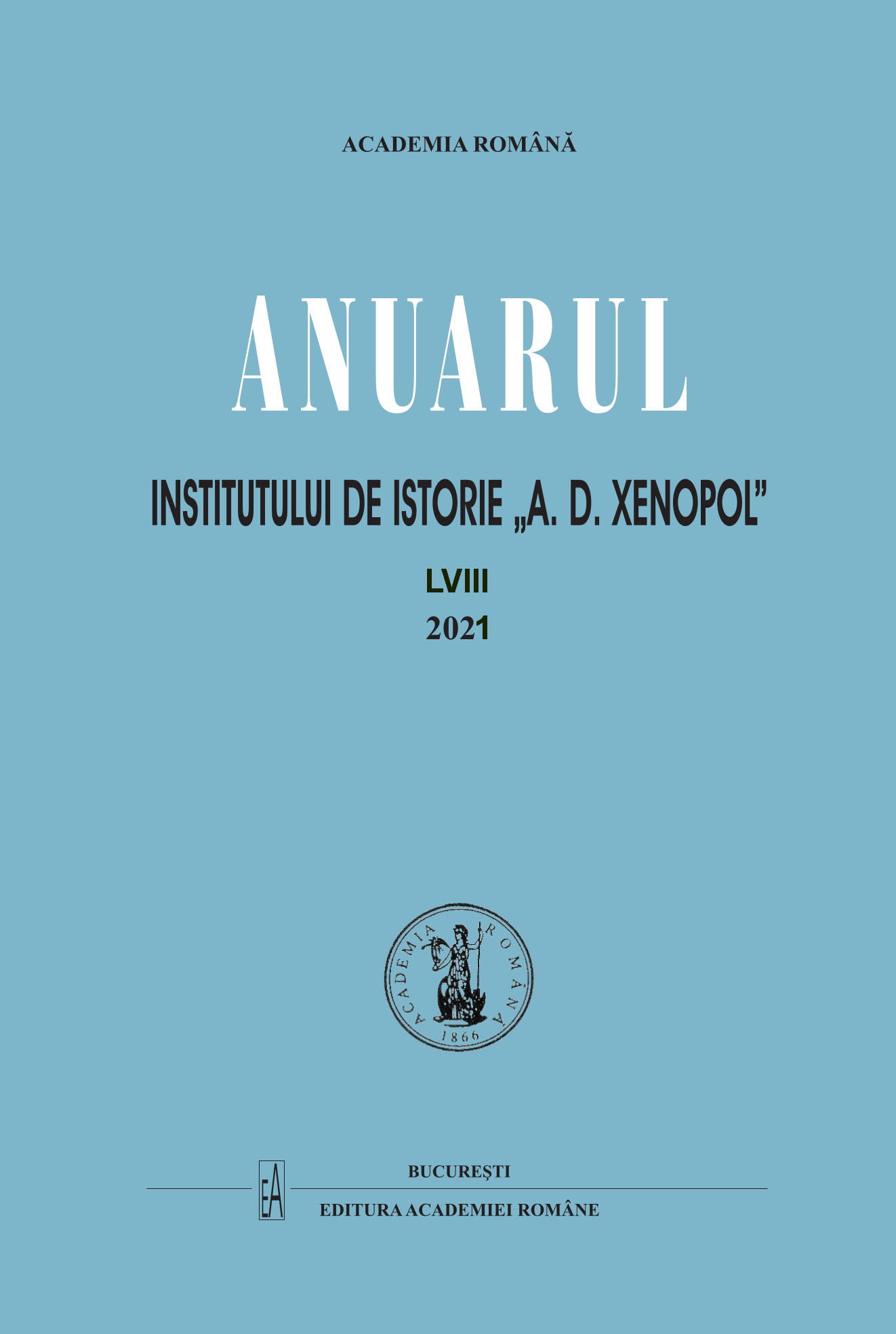RĂSFULGERAȚII”: ISTORIA OFICIALĂ ȘI CONTRAISTORIILE EI.MEMORIALISTICA, ISTORIA ORALĂ, REPORTAJUL DE ACTUALITATE ȘI MEDIA ONLINE, SURSE CONCURENTE ALE UNEI ARHIVE ÎN CURS DE CONSTITUIRE (II)
„RĂSFULGERAȚII” (THUNDERSTRUCK REFUGEES): OFFICIAL HISTORY AND ITS DENYING COUNTERPARTS. MEMOIRS, ORAL HISTORY, NOWADAYS REPORTAGES AND ONLINE INFORMATIONAS ALTERNATIVE SOURCES OF A GROWING NEW ARCHIVE (II)
Author(s): Astrid CamboseSubject(s): History, Oral history, Political history, Social history, History of Communism
Published by: Editura Academiei Române
Keywords: communism; Moldovan Republic; Romania; refugees; deportation; oral history;
Summary/Abstract: The present article is the second part of a research published under the same title in 2017. Given the general tendency of historians and sociologists to take more and more into consideration the new sources of public knowledge, among which oral history, memoirs and online information are considered first rank ones, in order to balance the official information and in search of a deeper truth, we analyse some testimonials that have thoroughly contributed to the recent progress of the matter, with regard to the communist history of the Moldavian Republic. The Archives of Memory series (now completed, comprising eight volumes, published between 2016 and 2018) contains interviews with Moldovan victims of the communist regime who speak about their life in deportation or as refugees. Some interviews with former political refugees conducted by myself in Bucharest, in 2017, and some online sources have also been put to use in the attempt to draw a general map of repression in the Moldavian Soviet Socialist Republic, as felt and mirrored in the given information. The main issues people have spoken about seemed possible to be grouped as following: elements of ethnography and deportation folklore; symbolic parts and concrete actions taken by women in the course of repression and/or resistance; children and childhood during the communist regime; family, land and household after the Second World War; life in Bessarabia before the First World War and during the interwar period, with phylogerman, phylorussian and phyloromanian currents; key moments and events triggering the historic trauma; the new social relations under the communist regime; ethnicity in the new distribution of power; festivities – Soviet and Moldovan style –, monuments and commemorations; extreme phenomena, typical for the concentration camps (extreme famine with an edge to cannibalism, anti-hygiene, fatal deseases, extreme frost, extermination through forced labour); concurrent and opposing memoirs; simple truths and historical judgements of the common people. The need to interrogate official history by balancing it with such new sources has already been noticed by many researchers, as history in its making is thus better reflected and should be consequentially studied by means of such realistic, manifold investigations.
Journal: Anuarul Institutului de Istorie »A.D. Xenopol« - Iaşi
- Issue Year: LVIII/2021
- Issue No: 58
- Page Range: 485-520
- Page Count: 36
- Language: Romanian

